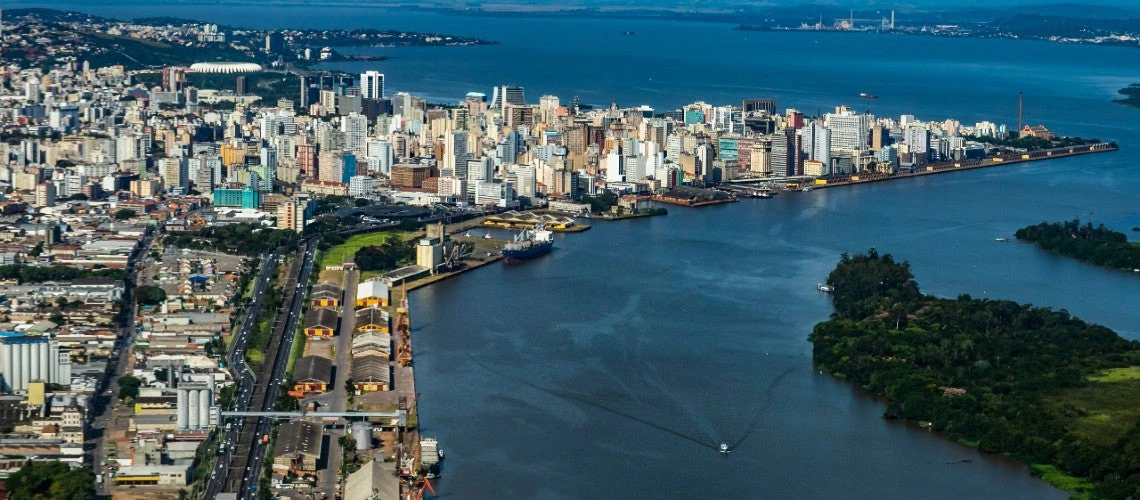 City of Porto Alegre of the state of Rio Grande do Sul, Brazil South America seen from above
City of Porto Alegre of the state of Rio Grande do Sul, Brazil South America seen from above
Brazil has been actively promoting the implementation of public-private partnerships (PPPs) as a means of attracting private sector investment and fostering economic growth. The country has signed more than $580 billion in PPP contracts since the introduction of this model in 2004 , with planned investments of approximately $320 billion in the next years. These investments have been directed towards diverse areas, including highways, airports, energy, healthcare, education, and sanitation, among others. The PPP model has been successful in delivering projects that meet the needs of the population, while generating revenue for the private sector and contributing to the country's economic development.
At the municipal level, the city of Porto Alegre (capital of the state of Rio Grande do Sul, Brazil) has been a notable success story in implementing PPPs. The city's PPP program has implemented several important projects, such as the Public Lighting project, which improved the quality of public lighting in the city while reducing costs, and the Concession of Parks project, which aimed to improve the management and infrastructure of public parks in the municipality. These successful projects have not only improved the quality of life for citizens but also helped to attract more private investment to the region.
The management model of Porto Alegre's PPP Secretariat during the 2017–2020 term is a notable example of how including local and external talent can lead to exceptional results: several team members were subsequently appointed to prominent positions in other locations, as State Secretaries, Municipal Secretaries, directors of development banks, and even in the federal government, allowing them to disseminate knowledge and practices adopted to other places.
Such as in the city of Caxias do Sul, Brazil, where a former member of the Porto Alegre team became a Municipal Secretary in that city, taking with him all the knowledge and experience acquired. Thanks to this, Caxias do Sul has been able to make important PPP and concession projects viable, which will benefit the entire city.
In this context, the inclusion of highly qualified civil servants is a crucial factor for the continuity and improvement of these programs. Through having the opportunity to work with local and external talent in a diversified environment, they can contribute significantly to the success of the program. And by including people who know the realities and particularities of the location where the program is implemented, it’s possible to have a more comprehensive and in-depth perspective—which can generate more effective and sustainable solutions.
Including local talent also promotes a sense of belonging and engagement by the community, which can lead to greater adherence and participation in the projects. This can be crucial for the continuity of the program.
Seeking the right balance between the hiring of local and external talent—who bring different perspectives and skills to the table—can generate exceptional results for implementing PPPs, not only in the short term but also in the long term through benefits for the local community and society.
Disclaimer: The content of this blog does not necessarily reflect the views of the World Bank Group, its Board of Executive Directors, staff, or the governments it represents. The World Bank Group does not guarantee the accuracy of the data, findings, or analysis in this post.
Related posts
Promoting bankable PPPs in Brazilian municipalities
The CP3P credential as a best practice guide for governments in Brazil
Filling the local PPP capacity gap in Brazil: how the CP3P program can help
A PPP Encore in Brazil: Two healthcare partnerships boost Bahia’s ability to care for citizens


Join the Conversation